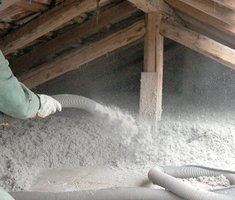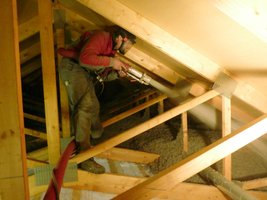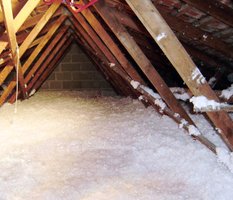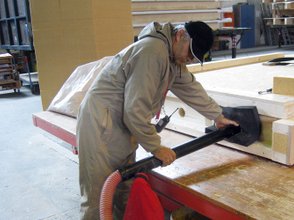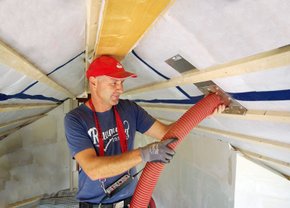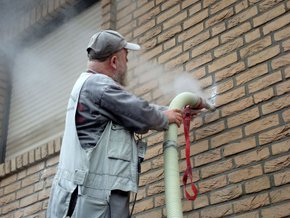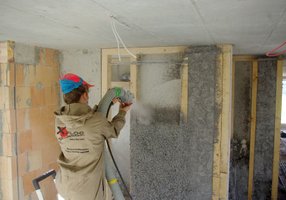PROCESSING OF INJECTED INSULATION MATERIALS
In contrast to panel-type insulating materials, injected insulation materials are delivered in a loose form. Using blowing machines, the material is loosened and injected into hollow spaces, where it compacts. Injected insulation materials have unbeatable advantages over panel-type insulation materials that enable fast and economical working on the building site or in the works.
Products: isofloc cellulose fibres (other insulating materials on enquiry)
Application area: newly built roofs, floors, ceilings and walls in prefabrication
Processing: the prefabricated timber construction elements, which are open at the top, are automatically insulated in the works using the easyfloc blowing plate.
Products: isofloc cellulose fibres
Application area: newly built roofs, floors, ceilings and walls in prefabrication
Processing: the prefabricated timber construction elements are insulated in the workshop or on the building site by means of injection holes and lances.
Products: isofloc cellulose fibres
Application area: newly created or existing hollow spaces in roofs, floors, ceilings and walls
Processing: the insulating material is pneumatically blown into the hollow spaces through an inserted hose until the settle-proof degree of compaction is achieved.
Products: isofloc cellulose fibres, isofloc pearl
Application area: existing hollow spaces in walls (especially for later renovation [cavity walls also] or in case of low insulation thicknesses)
Processing: the insulation of upright components with the nozzle can be done simply through the inner or outer shell.
Products: isofloc cellulose fibres
Application area: inaccessible top floors, suspended ceilings
Processing: the insulating material is blown from above freely between beams or onto ceilings and moistened with water in order to protect the material from being moved by air currents.
Products: isofloc cellulose fibres
Application area: interior insulation, partition systems, facades, church domes
Processing: in the CSO method a light water mist is used as a binding agent. This activates the natural cohesive forces of the cellulose, and a firm, free standing layer of thermal insulation layer forms without gaps. Following the application the moisture introduced evaporates within a few days.













